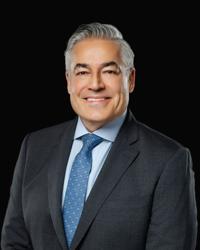UnityPoint Health - Iowa Methodist Transplant Center
Information
Number of patients waiting reflects the current number of patients waiting to be seen. This number changes frequently and is not exact.
Kidney Transplant Program
For over 30 years, the Transplant Center at Iowa Methodist Medical Center has performed state-of-the-art adult kidney transplants with a dedicated team of specialists. We want to see you succeed, and we will work with you every step of the way in your transplant journey.
Why choose UnityPoint Health for kidney transplant?
- Over 1,000 kidney transplants performed at Iowa Methodist Transplant Center.
- Excellent patient outcomes proven by the Scientific Registry of Transplant Recipients (SRTR).
- We have been recognized as one of the nation's top achievers in living donor follow-up.
- One-third of our transplant patients are over the age of 65.
- We encourage multiple listing.
- We accept patients who have a body mass index (BMI) over 40.
- We participate in the National Paired Exchange program.
- We performed the first robotic-assisted laparoscopic living donor nephrectomy in Iowa.
- We were the first in-center paired exchange in Iowa.
- We performed the first national paired exchange in Iowa.
- We were the first in Iowa to utilize a humanitarian living donor.
Hours and Directions
Hours of Operation
- Monday: 8:00 AM - 4:30 PM
- Tuesday: 8:00 AM - 4:30 PM
- Wednesday: 8:00 AM - 4:30 PM
- Thursday: 8:00 AM - 4:30 PM
- Friday: 8:00 AM - 4:30 PM
- Saturday: Closed
- Sunday: Closed

Transplant Patient Referral
The kidney transplant process begins with a referral to the Iowa Methodist Transplant Center. You, your nephrologist or your dialysis unit social worker can make a referral. Once the Transplant Center recieves your referral, the team will review your information and contact you for next steps.
Before your first evaluation is scheduled, the following forms must be completed and sent back to the Transplant Center.
Transplant Evaluation
Evaluation Process
The initial evaluation is a two-day process. You will need to bring a support person with you. This will be the person who will be with you throughout the transplant process. During your evaluation you will:
- Attend a kidney transplant education class.
- Meet with the transplant team.
- Undergo testing, which may include lab work, chest x-ray, EKG and CAT scan.
After your evaluation, the transplant surgeons and transplant nephrologists will determine if further testing is needed. Once completed, your results will be presented to the Transplant Listing Committee. The committee will determine your candidacy to be listed for a kidney transplant. You will either be approved, denied or be provisionally approved pending further tests.

Registration as a Transplant Candidate
Candidacy for kidney transplantation is determined by a multi-disciplinary team consisting of physicians, social workers, transplant surgeons, transplant nephrologists, transplant pharmacists, dietitians and transplant coordinators. Cases are presented to this team for their review and approval.
Kidney transplant candidacy is based on understanding the factors that may influence the long-term success of the transplant. These factors include the patient's history of treatment compliance, emotional status, family support, medical status and overall ability to comply with the rigorous post-transplant medication schedule.
Once the patient is deemed a transplant candidate based on the listing criteria, he or she is placed on a national waiting list, the United Network for Organ Sharing (UNOS). UNOS serves to match candidates with available donors.
Transplant Waiting List
There are several things you can do after becoming listed on the Transplant Center's waiting list. Stay health and notify your transplant coordinator if you are sick or hospitalized, if you have a change of phone number or address and if you are leaving town. It's also important to notify the transplant team if you have a change in insurance.
When there is a potential kidney transplant available, you will receive a call from the transplant coordinator. The coordinator will inform you of your next steps. It is important to ensure your phone number is up to date with the transplant team.
Living Kidney Donation
A living donor can be a biological relative (parent, sibling or child), unrelated (spouse or friend) or humanitarian (someone who donates their kidney to an unknown recipient on the national waiting list). If you are considering becoming a living kidney donor, please read through this information as you make your decision. The Iowa Methodist Transplant Center hopes to prepare you for each step of your living donation process.
Process to Become a Living Kidney Donor
The journey to become a living kidney donor begins when you submit the Living Donor Health Questionnaire. Once the form is received, the Transplant Center will contact you.
In addition, please complete the Authorization for Release of Health Information and Informed Consent for Evaluation of Donation and either fax or mail the forms back to the Transplant Center.
We will do our best to schedule the kidney donation evaluation around your schedule. The evaluation will begin with testing and lab work. If you are not from the Des Moines area, we will coordinate for you to complete as much testing as possible locally before having you come to Des Moines.
During the evaluation, the transplant team will discuss the donation process further and create a care plan that is specific to your case. The transplant team is responsible for assessing your overall health status including your physical, emotional and mental health. We encourage you to bring a support person who will be with you throughout the donation process. Overall, it is the responsibility of the transplant team to ensure that donating your kidney is right for you.
After your evaluation, the living donor coordinator will present the information to the Listing Committee. You will either be approved, denied or be provisionally approved pending further tests.
- If you are approved for donation the living donor coordinator will notify you. From there a surgery date can be picked.
- If it is determined you are not a good candidate, you will be notified of the reason and we will ask the recipient to seek other potential donors. The recipient will not be notified as to why you are not a candidate.
You have the right to change your mind at any time! If you decide not to move forward with a kidney donation, the recipient will not be notified of the reason. This is kept confidential.
Primary Care Provider
We would like you to have a primary care provider (PCP) prior to donation. If you do not have a primary care provider we can help facilitate the process. After donating, you will have one kidney for the rest of your life and will need to have regular followup care to ensure that your remaining kidney is in good health.
Independent Donor Advocate
You will meet with a donor advocate prior to donating your kidney. The donor advocate is separate from the transplant department. We use them to make sure that you feel you have your own "spokesperson" in regard to your healthcare and decisions. The donor advocate is concerned with your well-being and will make recommendations to the transplant team whether they feel it is appropriate for you to donate your kidney.
The donor surgery is performed laparoscopically and takes 3-4 hours to complete. After surgery you will be given pain medication to help with any discomfort and will be spend 2-3 days in the hospital.


Kanwaljit Chouhan, MD
Transplant Nephrology, Nephrology

Monica Rebielak, DO
Transplant Surgery

Arani Nanavati, MD
Transplant Nephrology, Nephrology

Ivy Melgarejo, MD
Transplant Nephrology, Nephrology

Jennifer Thompson, DO
Transplant Nephrology, Nephrology

Juan Arenas, MD
Transplant Surgery

